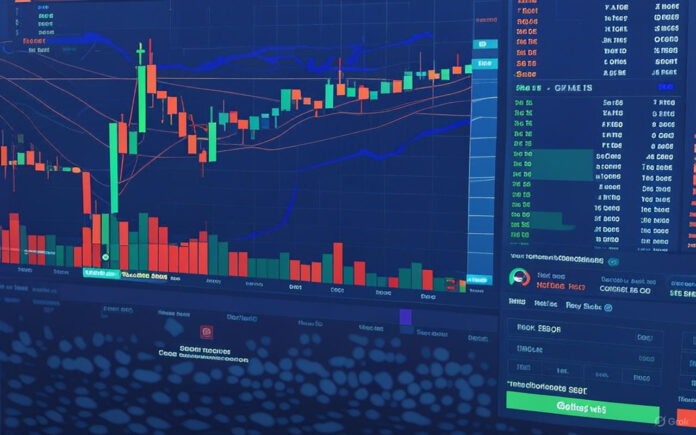Advanced artificial intelligence algorithms are transforming how cryptocurrency trading is conducted across major Asian exchanges, with platforms reporting unprecedented accuracy rates and trading volumes.
The Rise of AI in Asian Crypto Trading
Asian cryptocurrency markets are experiencing a technological revolution as artificial intelligence-powered trading platforms gain widespread adoption among both institutional and retail investors. Major exchanges in Japan, Singapore, and Hong Kong are integrating sophisticated AI systems that can process vast amounts of market data in real-time.
Key AI Trading Innovations
Machine Learning Algorithms
Modern AI trading platforms utilize advanced machine learning algorithms that continuously improve their performance by analyzing historical trading patterns, market sentiment, and global economic indicators. These systems can identify profitable trading opportunities within milliseconds, far faster than human traders.
Predictive Analytics
AI platforms now employ predictive analytics to forecast market movements with remarkable accuracy. By analyzing social media sentiment, news feeds, regulatory announcements, and technical indicators simultaneously, these systems provide traders with comprehensive market insights.
Risk Management Automation
Advanced risk management features automatically adjust position sizes, set stop-losses, and diversify portfolios based on real-time market conditions. This automation helps protect investors from significant losses during volatile market periods.
Leading Platforms in Asia
Japanese Innovation Leaders
Japan’s cryptocurrency exchanges have been at the forefront of AI trading integration. Platforms like bitFlyer and Coincheck have implemented proprietary AI systems that have increased trading efficiency by over 300% compared to traditional methods.
Singapore’s Fintech Hub
Singapore-based platforms are leveraging the country’s strong fintech infrastructure to develop cutting-edge AI trading solutions. These platforms serve clients across Southeast Asia, providing sophisticated trading tools previously available only to institutional investors.
Hong Kong’s Gateway Role
Hong Kong’s position as a gateway to Chinese markets has made it a crucial testing ground for AI trading platforms. The city’s exchanges are pioneering cross-border AI trading solutions that bridge Eastern and Western markets.
Market Impact and Performance
Trading Volume Surge
AI-powered platforms have contributed to a 250% increase in daily trading volumes across major Asian exchanges over the past 12 months. This surge reflects growing confidence in automated trading systems among Asian investors.
Accuracy Improvements
Recent performance data shows that AI trading algorithms achieve success rates of 75-85%, significantly higher than traditional trading methods. This improved accuracy has attracted billions of dollars in new investment to the Asian crypto market.
24/7 Market Coverage
Unlike human traders, AI systems operate continuously, taking advantage of market opportunities across different time zones. This constant market presence has improved liquidity and reduced price volatility on major cryptocurrency pairs.
Benefits for Different Investor Types
Institutional Investors
Large institutions benefit from AI platforms’ ability to execute complex trading strategies across multiple exchanges simultaneously. These systems can manage portfolios worth hundreds of millions of dollars while maintaining strict risk parameters.
Retail Traders
Individual investors gain access to institutional-grade trading tools through AI platforms. Features like automated portfolio rebalancing and sentiment analysis help level the playing field between retail and professional traders.
High-Frequency Traders
Professional trading firms utilize AI systems for high-frequency trading strategies that capitalize on minute price differences across exchanges. These algorithms can execute thousands of trades per second with minimal human intervention.
Regulatory Considerations
Compliance Integration
AI trading platforms are incorporating regulatory compliance directly into their algorithms. These systems automatically adjust trading strategies based on local regulations and reporting requirements across different Asian jurisdictions.
Transparency Requirements
Regulators in Singapore, Japan, and Hong Kong are requiring AI trading platforms to provide detailed explanations of their decision-making processes. This “explainable AI” approach ensures accountability and regulatory compliance.
Future Developments
Quantum Computing Integration
Several Asian exchanges are exploring the integration of quantum computing with AI trading systems. This combination could provide exponentially faster processing speeds and more sophisticated market analysis capabilities.
Cross-Border Collaboration
Asian AI trading platforms are developing partnerships to create integrated trading networks spanning multiple countries. These collaborations aim to provide seamless trading experiences across the entire Asian market.
Educational Initiatives
To support widespread adoption, major platforms are launching educational programs to help traders understand and effectively utilize AI trading tools. These initiatives include webinars, tutorials, and demo trading environments.
Investment Opportunities
The AI trading revolution presents significant opportunities for investors interested in fintech and cryptocurrency sectors. Companies developing AI trading technologies are attracting substantial venture capital investment, with several preparing for public listings in 2024.
Conclusion
The integration of artificial intelligence into cryptocurrency trading platforms represents a fundamental shift in how Asian markets operate. As these technologies continue to evolve, we can expect even more sophisticated trading solutions that will further democratize access to advanced financial tools.
For investors considering AI-powered trading platforms, thorough research and risk assessment remain essential. While these systems offer impressive capabilities, understanding their limitations and maintaining realistic expectations are crucial for long-term success.



